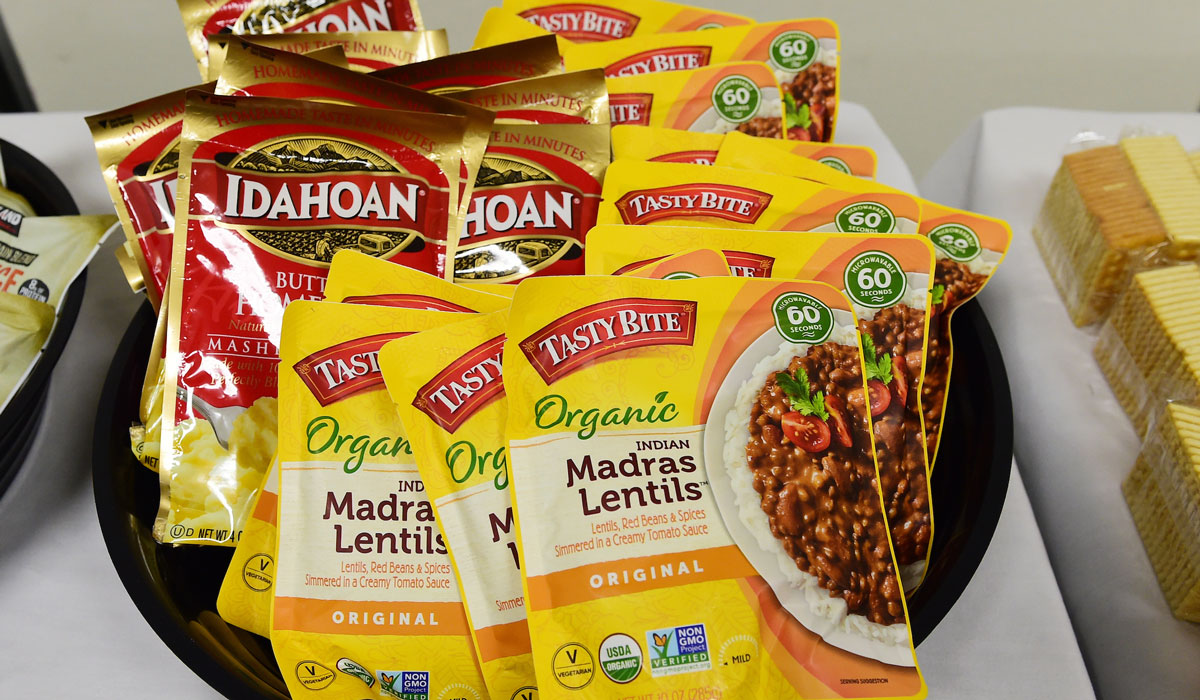

Members of the Catholic University community are less likely to struggle with food insecurity this year, thanks to the University’s pop-up food pantry, a twice-monthly Campus Ministry initiative that offers food and hygiene projects free of charge for those in need. The pantry is open to any Catholic University student, faculty, or staff member who is struggling with food insecurity, which the USDA defines as “a household-level economic and social condition of limited or uncertain access to adequate (and nutritious) food.”
According to campus minister Emmjolee Mendoza-Waters, the idea for the pop-up food pantry began in 2016 after she and other staff members began hearing about students who were having trouble affording healthy food. The first pantry was planned in accordance with that year’s Research Day, to see if people would use the service. Nearly 40 people came to receive food, which opened the door for the project to continue.
Karla Abney, a 2004 M.S.N. graduate of the Conway School of Nursing, began researching the need for a food pantry on campus last year as part of a field placement for her master’s studies in the National Catholic School of Social Service. She visited food pantries around Washington, D.C., and spoke with students, faculty, and staff members on campus to learn where food insecurity exists at Catholic University.
“My biggest eye-opener was realizing that people didn’t know what food insecurity was,” she said. “They might see the face of food insecurity without being aware of what it was. Because Catholic University is a top university and a private university, people didn’t realize that there could be anyone here who needs food. But this problem exists and it exists right here in our own backyard.”
Many of the students experiencing food insecurity, Abney found, are commuter students or upper-level students living off-campus without meal plans. These students might choose to skip meals or rely on non nutritious foods like ramen noodles in order to make ends meet. While these students might otherwise look normal, they can have trouble concentrating on their studies due to hunger and financial stress, resulting in poor grades or dropped classes.
One of the big challenges of the project, Abney said, is breaking through the stigmas that prevent those in need from obtaining help. Kara Feidelseit, a CCMA AmeriCorps VISTA, has been leading the food pantry project since July. She believes one of the best ways to break down stigmas about food insecurity is to talk about it more.
“Even if it’s just bringing it up with coworkers or family members, we want to start that conversation about food insecurity,” she said. “People don’t want to ask for help because they don’t want to be labeled as not having enough money for food. The reality is that a lot of people struggle with this — more than you would think.”
In the future, Feidelseit and Mendoza-Waters hope to find funding and a permanent location on campus where the food pantry can stay open everyday. A challenge is finding a place that will be accessible for all kinds of people — everyone from staff members to night students or student athletes.
“I think a university’s role is more than just providing an education for students; it’s about building a community that supports each other and helps each other perform to the best of their abilities,” said Feidelseit. “Nobody is going to be able to give their best if they’re hungry.”
For more information or to donate to the food pantry, contact cua-service@cua.edu.